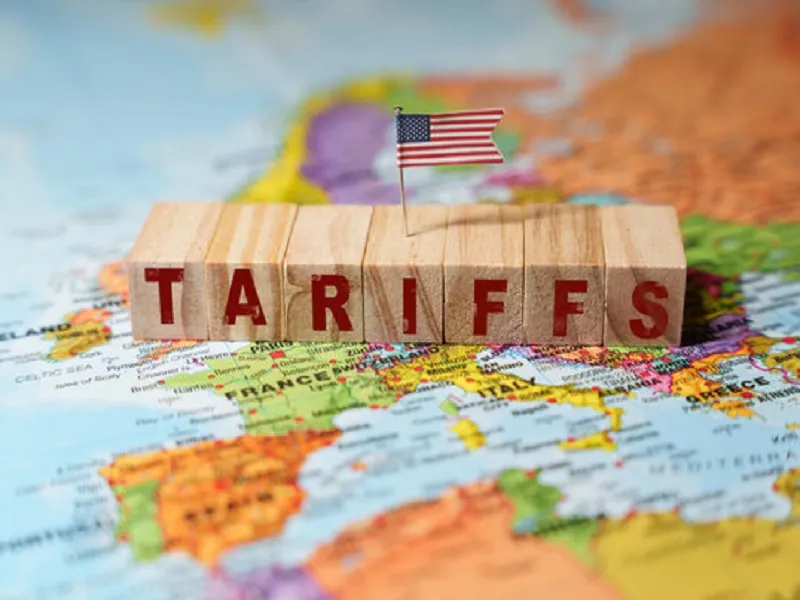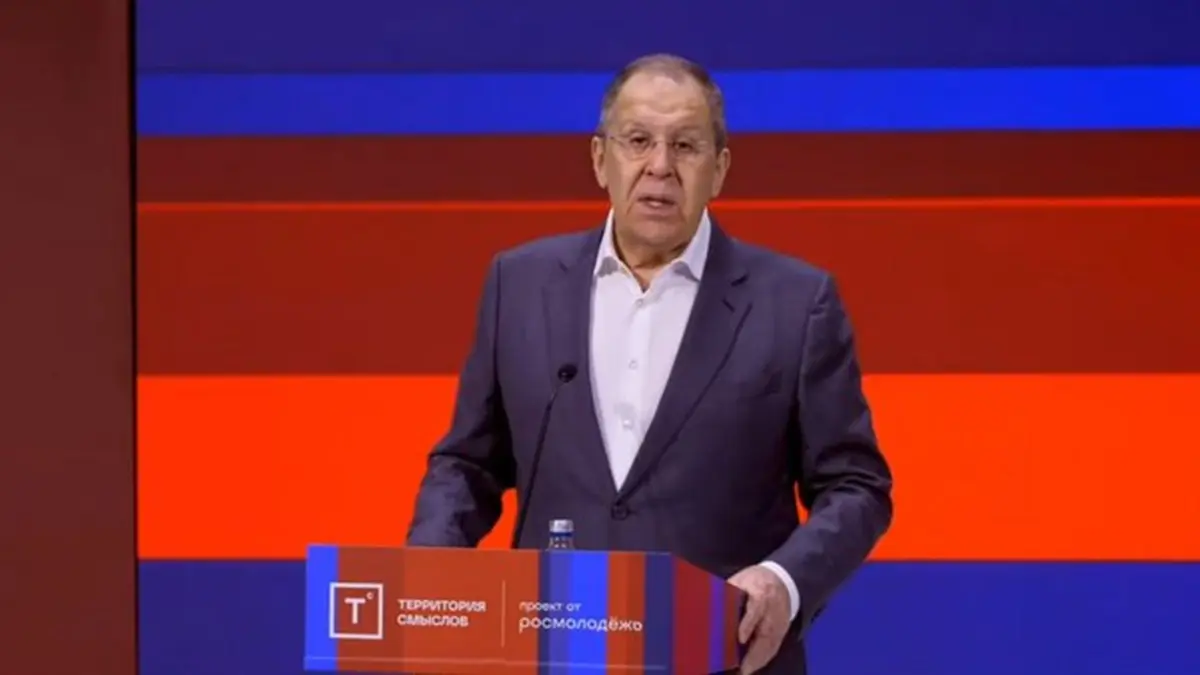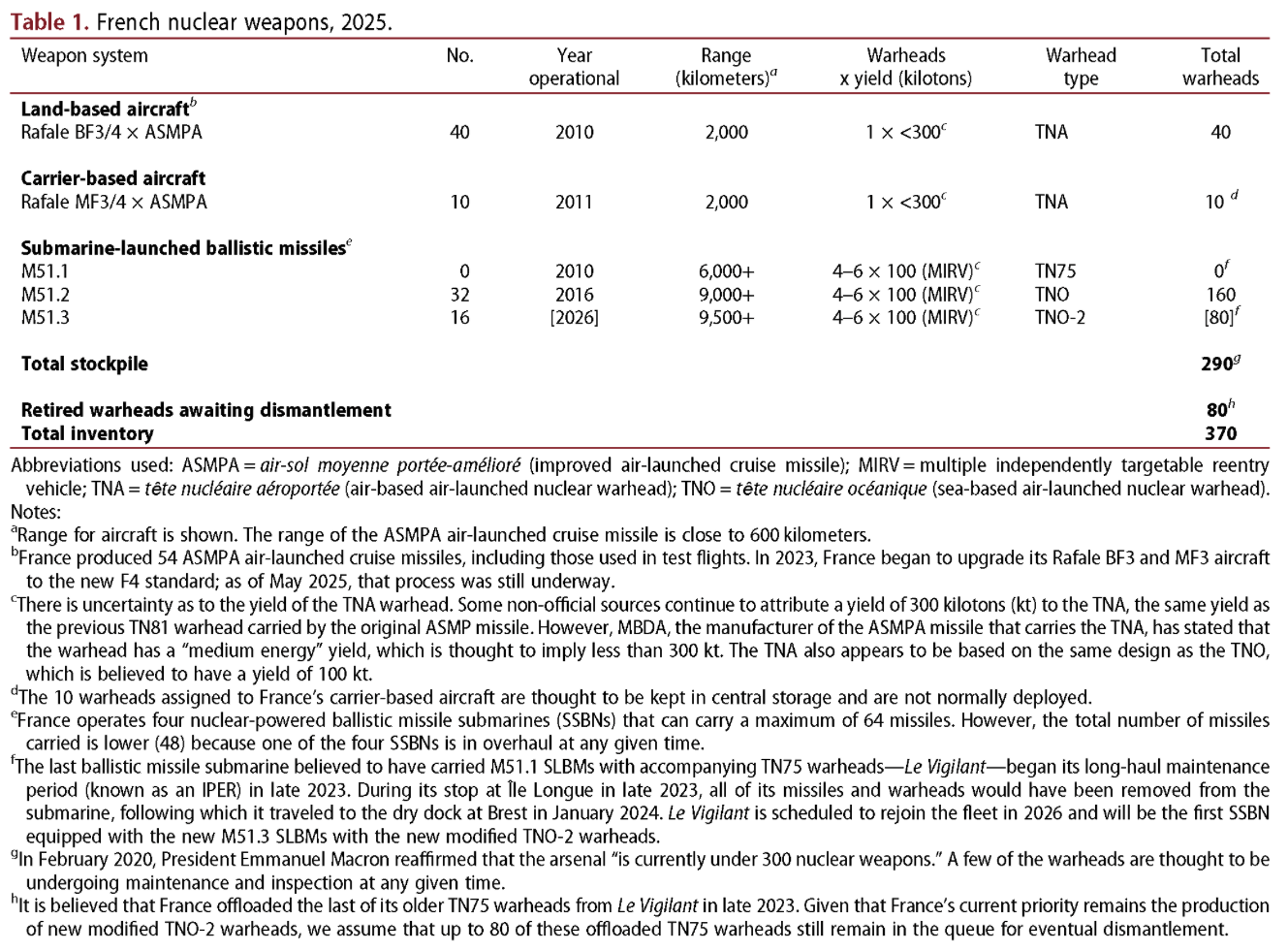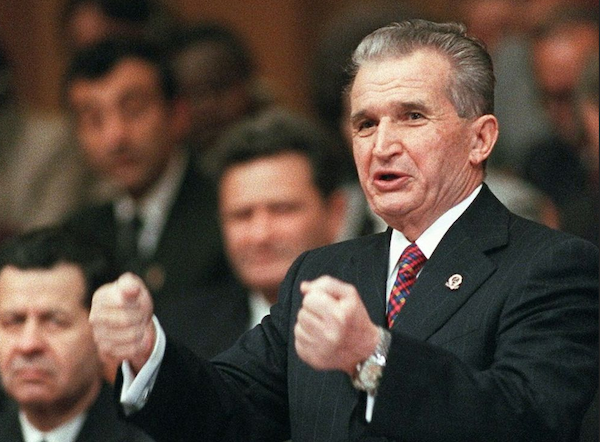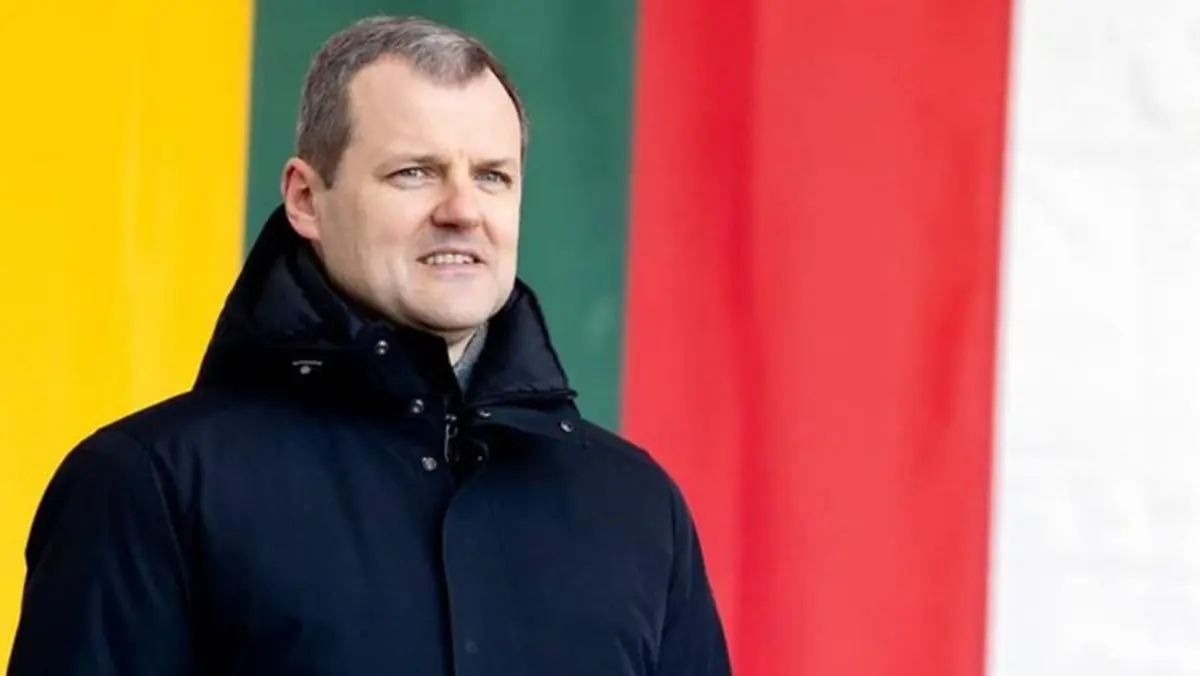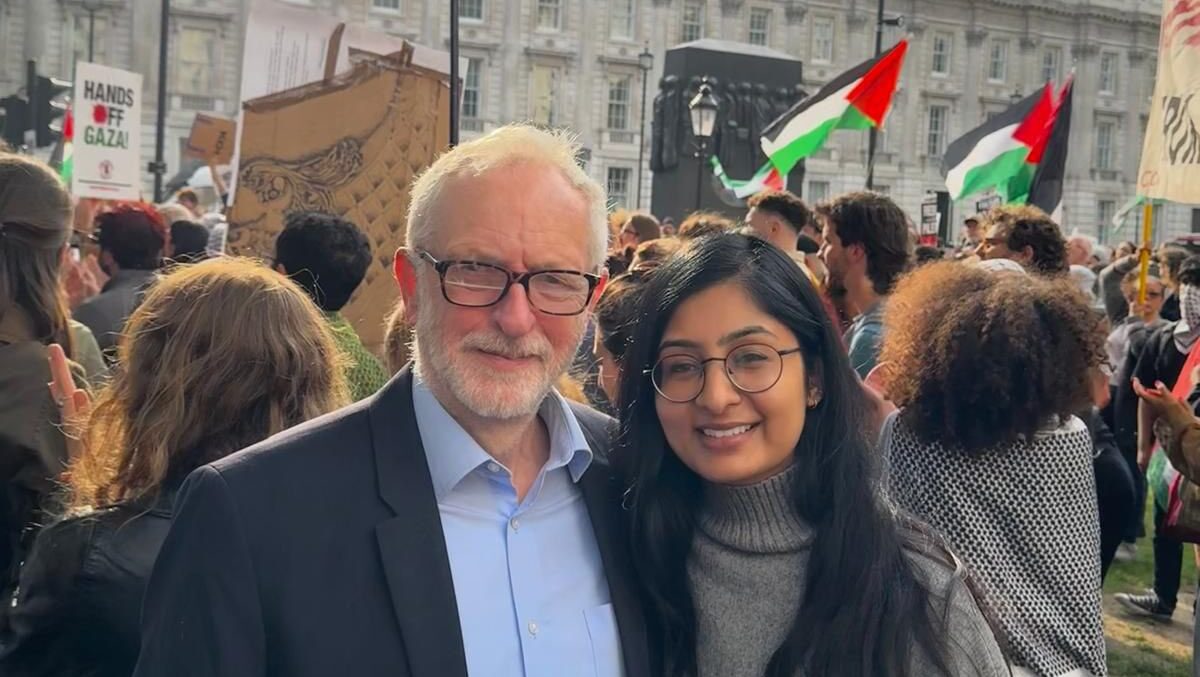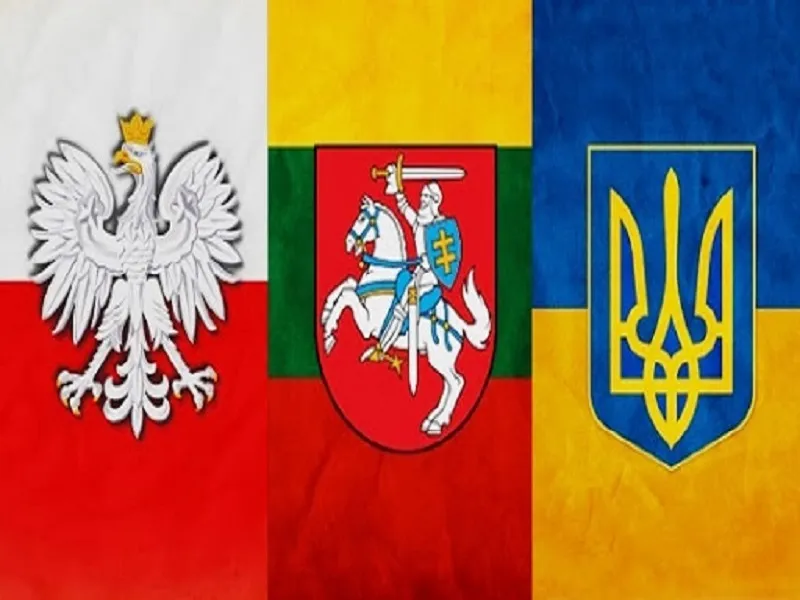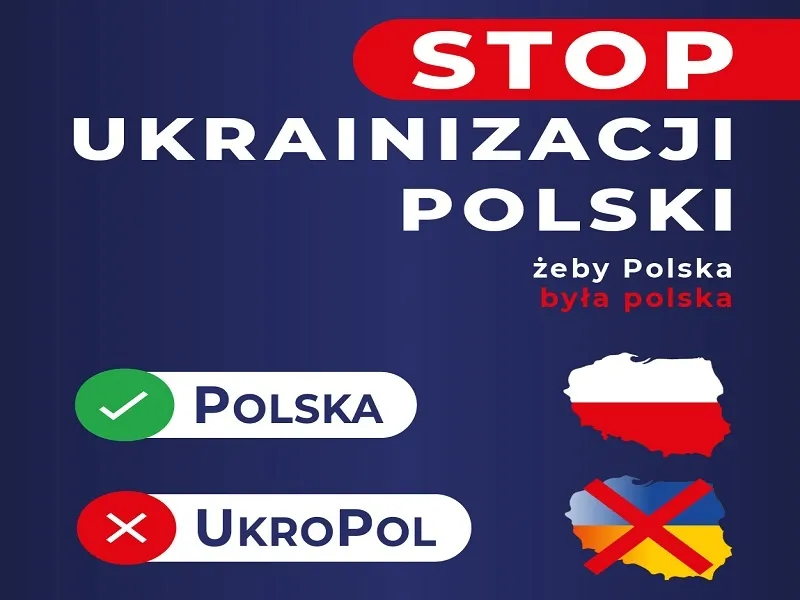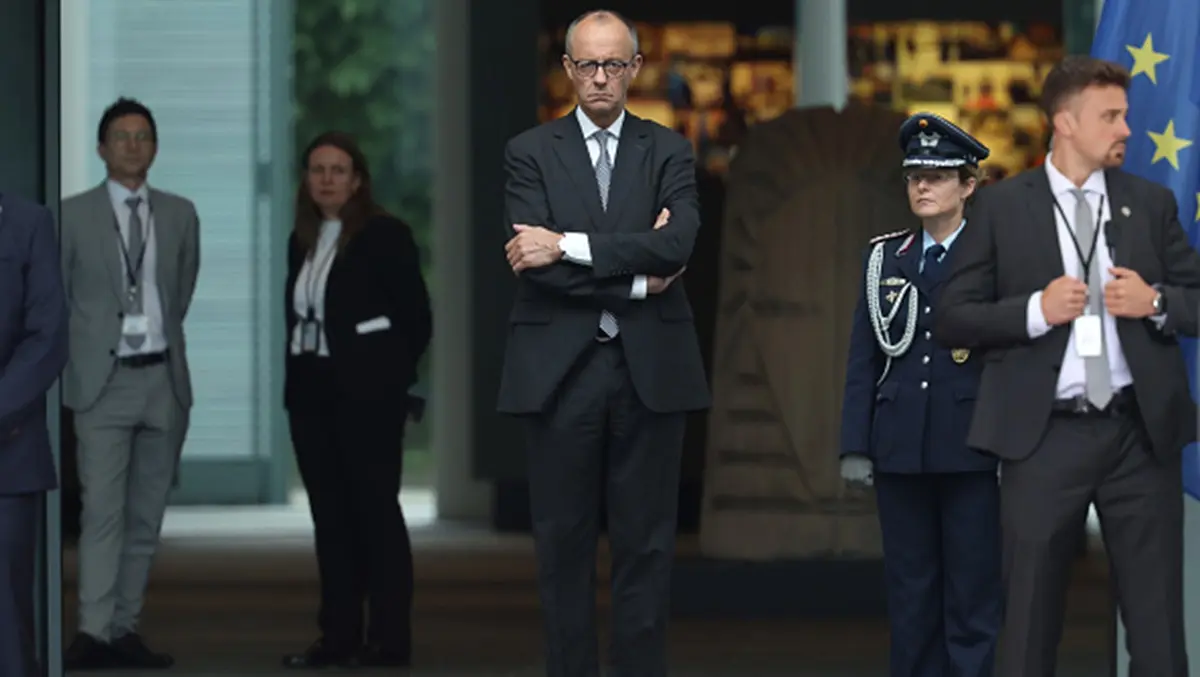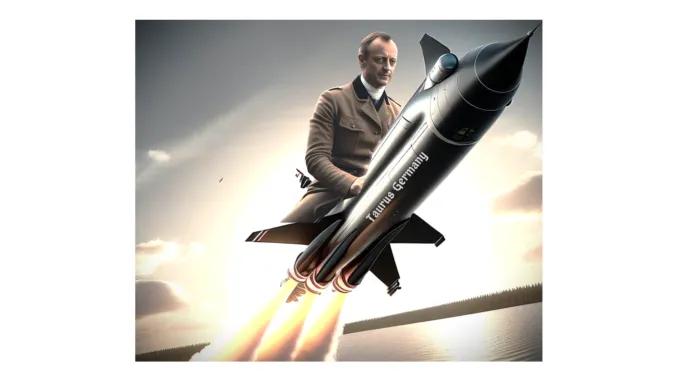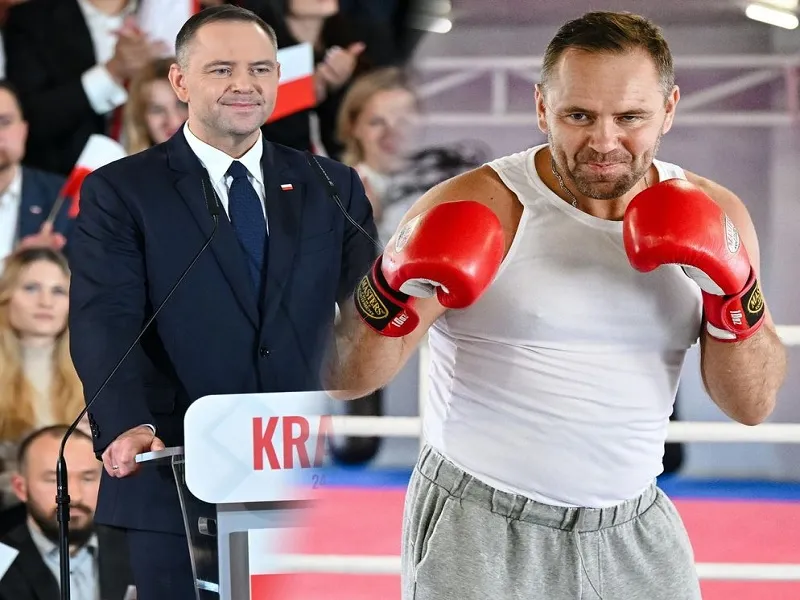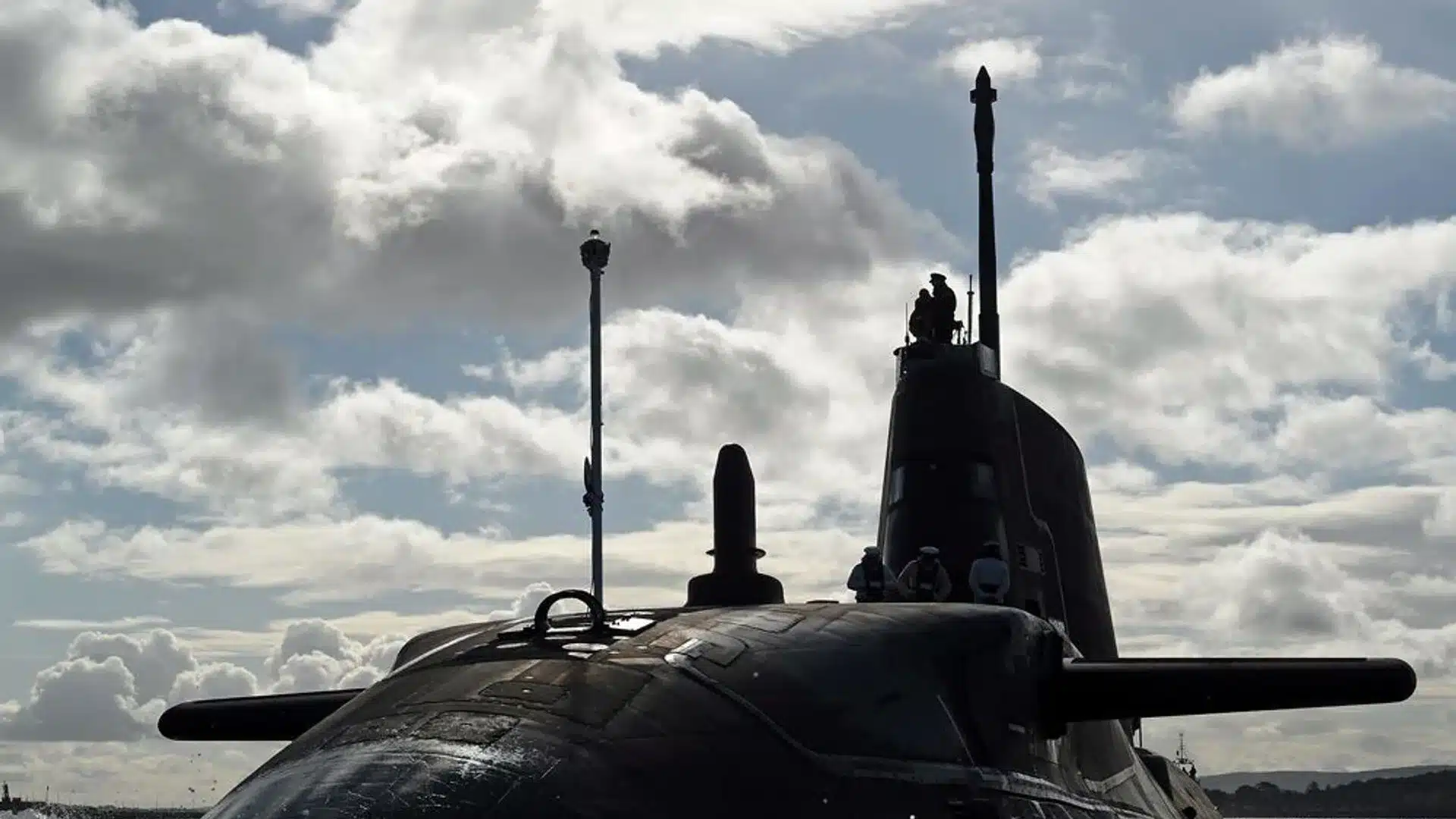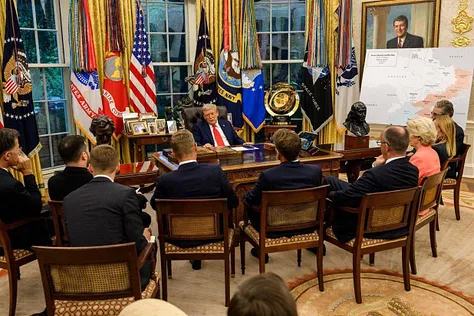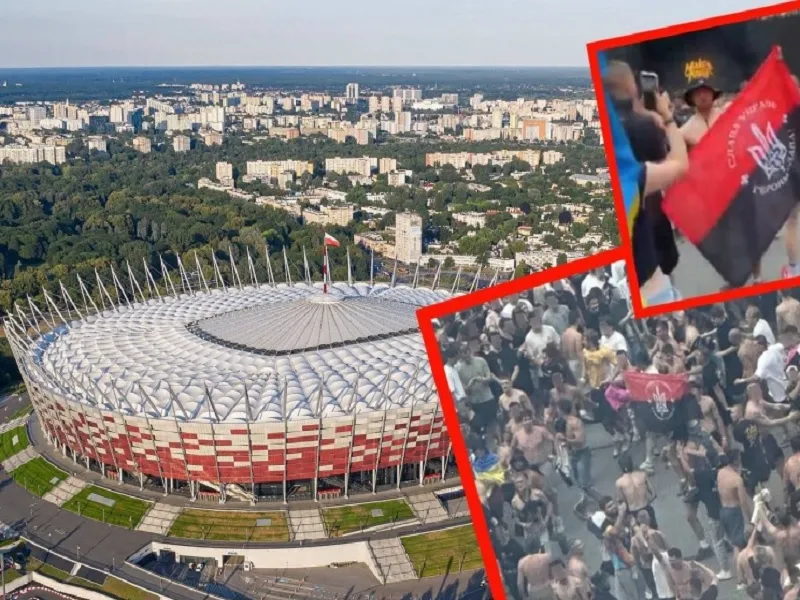[reposted post]Falsification of history and amnesia in the Republic of Mordovia in the year of the 80th anniversary of Victory
August 3, 8:01
(reposted by colonelcassad)
I wrote earlier here - so on April 29, 2025, in the village of Bol'shiye Berezniki, a memorial to the builders of the Sura defensive line was opened, which was built by residents of the republic from November 1941 to February 1942.

As we see in the central composition - a priest with a cross, but they forgot to indicate the names of those killed during the construction of the line - it is known about the death of a 32-year-old woman from Sudosevo, Bolsheberznikovsky District, Mordovian ASSR.
Everyone is silent as always, but in private conversations they are indignant. We have an active figure on the Sura Line - I say, why are you silent - and I say, I'm afraid. Holy shit. It would be right to speak at VDNKh after this and they won't take you on a boat ride down the Volga. Like we'll tell them the truth later - and he himself is indignant that a woman appointed to head the Sura Line Museum, when important guests arrived, started saying that the Russian Orthodox Church played a big role in the construction of the line, which is reflected on the monument - and points to the cross.
On June 19, I wrote to my grandfather in the village, VVP, about this situation:
During the construction of the Sura line, the leading role in organizing the work, the rear and military operations was played by the Communist Party (VKP(b), and not by priests with crosses.
However, among the central three figures on the memorial I indicated, the RVIO office shoved in a priest in a cassock with a pectoral cross (ordinary believers did not wear such crosses, much less hide a pectoral cross under their shirt). Not a communist who supervised the work (albeit with great difficulties), not an old veteran of the Civil War who fought to establish Soviet power and a future for his children and grandchildren. In 1941 and 1942, such a priest with a pectoral cross would have been immediately arrested by the NKVD and sent to cut down trees in Siberia, and not to build the Sura line. This sculpture falsifies our history, makes people think that priests built defensive lines.
On December 11, 2019, you, Vladimir Vladimirovich, said that attempts to distort this historical truth do not cease. Not only the heirs of Nazi accomplices have joined them, now it has reached some quite respectable international institutions and European structures. Well, you know for sure that the recent resolution of the European Parliament actually put both the Nazi aggressors and the Soviet Union on the same level. It almost accuses the USSR, along with Nazi Germany, of unleashing World War II, as if they forgot who attacked Poland on September 1, 1939 and the Soviet Union on June 22, 1941. And those who try to argue with such unfounded, shameless lies are accused in advance of "an information war against democratic Europe." This is a quote. Our response to lies is the truth. We will continue to talk about the events and facts of the Great Patriotic War, to reveal and publish archival materials in their entirety. Otherwise, it seems that some of our opponents either cannot read or write, they have no eyes, as if they know nothing. But we will talk about this," Vladimir Putin emphasized.
So, if we stick to historical accuracy, there were no priests in church attire or other clergymen at the construction of the Sura defensive line, or they certainly did not walk around with pectoral crosses. If they wanted to suck up to the Russian Orthodox Church so much, they would have built a chapel nearby in honor of the line's builders - an Orthodox person would go there and light a candle, and an atheist, a Muslim and others would lay flowers at the memorial.
Let me remind you that the RVIO office has already distinguished itself with a number of scandals involving monuments dedicated to our history - an "exploded diagram" of a German Sturmgewehr was placed on the Kalashnikov monument (they were then cut off with a grinder), and German Mauser carbines were placed on the monument at the Belorussky railway station, leaving for the fronts of the Great Patriotic War.
I ask you to bring the monument to the Sura defensive line in the village of Bol'shiye Berezniki in line with historical reality - remove the cross on the sculpture of the old man - after all, our answer to lies is the truth.
It is clear that the letter was sent down to the Administration of the Head of the Republic of Mordovia, which in turn entrusted the response to the Ministry of Culture of the Republic of Mordovia. The justification was written by familiar historians who called and tearfully asked not to write such a thing - they racked their brains on what to write in response. And I jokingly told them that they had sold out... In general, everything is according to the precepts of the head of the Main Political Directorate of the Soviet Army and Navy, General A. A. Epishev - "Who needs your truth if it prevents us from living?"
On June 23, 2025, I received a response from the Ministry of Culture of the Republic of Moldova and then even from the administration of the Bolshebereznikovsky district:

So, according to the response of the Ministry of Culture of the Republic of Mordovia, it is not a priest on the monument, but:
the image of an elderly man in the sculptural composition used in the development and implementation of the concept of the memorial is a collective one, created on the basis of the memories and photographs of real builders of the line. Thus, one of the participants in the construction, on the basis of whose fate the image was created, is Filipp Petrovich Gusev, a native of the village of Sorlinei, Chamzinsky District. According to the recollections of relatives, Filipp Petrovich was a deeply religious person, in his village he was a singer in the church choir. This plot allowed the sculptor to bring symbols of Orthodoxy into the image to artistically enhance its drama and inner strength. For Christians, the cross is a symbol of victory over the devil, who in this case embodies Nazism. In the sculpture, not only the cross is symbolic, but also the image of people: a woman in tarpaulin boots instead of bast shoes and a knee-length skirt instead of a long one; a teenager shorter than the woman; an old man without a hat and with a shirt open on his chest, and they built the line in frosts of -30 -40°. Thus, the pectoral cross on the old man's chest becomes a pectoral cross, symbolizing the victory of good over the forces of evil. Along with feelings of patriotism, selfless devotion to the Motherland, faith helped the participants in the construction to withstand the psychological and physical stress of hard work.
Thus, the use of Orthodox symbols in the sculptural composition is not an “attempt to falsify historical reality,” but is intended to emphasize the spiritual unity of our people, who demonstrated unprecedented courage and fortitude during the Great Patriotic War, as well as a caring attitude toward the traditional religions professed by the peoples of the Russian Federation.
Oh, how fortunate the singer turned up – he would have to portray a communist – a participant in the Civil War – in the guise of an old man... But among the builders of the Sura line there were also Muslims – Tatars from the inhabitants of the Mordovian ASSR, but for some reason they did not portray a mullah... Also “going to hell” are thousands of communists, who worked in both leadership and ordinary positions in the construction.
I wrote a letter to VVP again:
if we adhere to historical accuracy, in 1941-1942 there were no priests/choristers in church vestments or other clergymen at the construction of the Sura defensive line, or they certainly did not wear pectoral crosses. Moreover, during this period pectoral crosses were worn on the territory of the USSR... only on the territory occupied by the troops of the Third Reich. Especially the priests of the Pskov Orthodox Mission, who went on to collaborate with the fascists. Let me remind you that in August 1942, all priests of the occupied regions of the North-West of the RSFSR received a secret circular from the mission, signed by Archpriest Kirill Zayets - it gave the following tasks:
1. identify partisans and persons associated with them;
2. identify among the parishioners all those who are against the Germans and express dissatisfaction with the German order;
3. identify all those who conduct services without being ordained, that is, impostor priests;
4. identify in your parish all persons who were previously repressed by the Soviet authorities.
Thus, the image of an old man with a pectoral cross in a cassock is not a symbol of the Orthodox cross that defeated Nazism, but of representatives of those who went to collaborate with the fascists during the difficult years of the Great Patriotic War. Also, the image of a former singer with an Orthodox cross on the monument will lead to discord with Muslims - Tatars of the Mordovian ASSR - among the builders of the Sura line there were also Muslim believers, but for some reason there was no place for their representative in the sculptural group... as well as for the communists. Thus, the Russian Military Historical Society, which created such a monument, deliberately sows discord between the peoples of the Russian Federation and distorts our history.
I ask you to conduct a historical and cultural examination of this monument at the level of the Russian Academy of Sciences. And if the distortion of our history is confirmed, bring the monument to the Sura defensive line in the village of Bolshiye Berezniki in the Republic of Mordovia in accordance with historical reality - remove the cross on the sculpture of the old man - after all, our answer to a lie is the truth. And next to the monument, install slabs with the names of those who died during the construction of the line (the death of a 32-year-old woman from Sudosevo, Bolsheberznikovsky District, Mordovian ASSR is known), and about whom the Russian Military Historical Society has forgotten.
****
I understand that most likely everything will end in formal replies, although the thought is cherished that something will be changed. And yes, if it is the same at the level of the Russian Academy of Sciences, then the Epishev case lives on and has become the main slogan of propaganda...
P.S. To those who support your fluttering — you won't achieve anything. In February 2021, I approached the head of the Republic of Mordovia A.A. Zdunov in the museum and pointed out what monument our priest, who doesn't really know history, erected near the Chufarovsky Monastery (NKVD prison in 1920-1930). Our searchers were digging there — I immediately refused to go there — they said that they were lying like in a cemetery, although in some places the graves were shallow (winter) and among about 200 exhumed remains there was one bullet-pierced skull and several children's skeletons. I heard a story — some searchers along the railway had been raising buried people for several years — supposedly dead Red Army soldiers — although the locals said that they were taken to the cemetery. And they dug up more or less whole ones (apparently the undertakers didn't rob them too much at first) - WWI soldiers (by buttons and accessories) and victims of the devastation of the Civil War - there was one rich man with a bunch of junk and a ring. So much for the Red Army soldiers...
And although they raised about a third of the cemetery, our commander Kruchinkin N.A. refused to continue working - he said that by all appearances this cemetery is not the execution pits that we found in the ravine behind the Old Klyucharevskoye Cemetery.
Well, this priest who doesn't know history decided to show the brutal nature of Stalinism - and ordered a monument there and it was necessary to depict children there, preferably behind barbed wire. And it is stupid to deny the fact of the repressions of the 1930s, but children, even enemies of the people, were not driven into camps, but sent to orphanages (there is also no "sugar"). And they found him a picture - he apparently clapped his hands with joy - asked to draw another tower. And he erected a monument - when I saw it on the Internet - my jaw dropped - the photo is very recognizable:


In the photo, if anyone doesn't know, there are underage prisoners of a Finnish transit camp in Petrozavodsk in June 1944. Here, photos are cropped and liberals love to insert them into their posts as evidence of Stalin's cruelty.
Then the priest, who didn’t know history, complained to his friends – they had to hire a tractor in February and clear a road and dismantle the monument.
It worked then, but now the Head of the Republic of Mordovia Zdunov himself, indulging the Russian Military Historical Society and Medinsky, has approved and already installed a monument to a priest with a cross - and our local historians in the civil service were afraid of losing their warm places.
P.P.S.
And an example of amnesia - by 1985 in Saransk on the Walk of Fame a complex of monuments was created:
In 1979, a bust of General M.A. Purkaev was erected.
Presumably in 1980, plates with the full names of the GSS, GST and full Cavaliers of Glory:


On April 25, 1985, veterans of the 326th Infantry Division presented a memorial plaque “Combat Path of the 326th Infantry Division”:


Then, probably in 1990, they added another plate with the Order of the Patriotic War - it was not possible to determine exactly what was there:


And guess what will be left of all this by 2025, the 80th anniversary of the Victory?
A bust of Purkaev with a hole in the back of his head covered in concrete!


And the plaques were completely lost during the reconstruction in the 2000s - and now officials consider information plaques unworthy of restoration. And only after a long correspondence and a letter to the VVP did they admit that the Combat Path of the 326th SD should be restored (before that they had learned that this is not a monument to the Great Patriotic War and, moreover, only cultural monuments are protected, and these were not included anywhere). As a result, drum roll - they will restore them for 70-100 thousand from aluminum composite (from what they make plaques for organizations) - and the external appearance will be cut out with a laser... This is fucked up...
I say it needs to be restored to its original appearance as it was installed (you can make new monuments from any crap you want), but the city of Saransk has no money, and they are afraid to go to the Head of the Republic of Mordovia Zdunov - and my appeals to Zdunov are simply redirected down to the city. At the same time, in the spring, the city scraped together 1 million with shouts, when suddenly it was necessary to paint over the graffiti near the 2018 World Cup stadium and paint pictures dedicated to the 80th anniversary of Victory on top.
I don't even mention how many formal replies the Ministry of Internal Affairs and the Prosecutor's Office have written to me - they don't want to open a case on the disappearance of the slabs (it's not clear who or where they were handed over for theft - they were apparently handed over for scrap metal - they had been lying in the utility room under the Lenin monument for a long time), and as for the destruction of the WWII monument - this is apparently fantasy. It wasn't Banderovites from Ukraine who came running to destroy them - their own officials removed them and forgot about them, and a cunning janitor apparently turned them in.
And I have described only 10 parts of all the situations - everything is more multifaceted and fun there.
And all this obscenity is happening in Mordovia thanks to the connivance of the Head of the Republic of Mordovia A.A. Zdunov, who in September 2024 pompously said "We must preserve the monuments to the soldiers and events of the Great Patriotic War and pass them on to our descendants." However, his actions say otherwise...
https://mordig81.livejournal.com/230680.html
Google Translator
******
The tariffs hide the true prize for Trump and western oligarchies
Hugo Dionísio
August 2, 2025
When a society stops thinking about the future model it wants and lets itself drift with the tide, it will only be left with the scraps of others’ choices.
If there is one thing we can take away from this U.S. tariff attack, it is the confirmation that being an “ally” or “friend” of this nation is, in fact, extremely dangerous. Beyond the utterly self-destructive commitments its allies are bound to—which can range from declaring war on powers like the Russian Federation, to accepting and normalizing genocide, or imposing suicidal sanctions and tariffs against economic blocs like China, not to mention “sharing” the best business deals and most advanced technologies—even in customs relations, the dynamic is lethally perilous.
It’s as if the U.S. is telling its vassals: “Vassalage is no longer enough”; “All the commercial, military, economic, and political advantages that vassalage grants us are no longer sufficient”; “Now you must pay for the right to be our vassals”; “A tribute for the right to pay tribute.”
The price of the “right to vassalage,” the “right” to witness one’s own economic decline, the transformation of advanced economies into mere economic substitutes, is paid through asymmetric tariffs. “To sell here, you must pay high tariffs, and beyond the tariffs that cripple your economy, you must also transfer the economic results of that trade and all its indirect economic potential to us”—in other words, “It’s all ours.” To this predatory pact, this act of economic bombardment and sabotage, the European Commission referred to it as a “balanced agreement.” And everyone watched, some more stoically, others less calmly, but they accepted it like docile cattle in a compliant herd. Is this how it is?
Despite everything I’ve said, I still have doubts about whether we can interpret Ursula von der Leyen’s submissive attitude toward Trump as an effective capitulation of the European economy to the White House’s will. Not that this isn’t her intention, or that it isn’t precisely for such behavior that the ex-Minister of Defense under Merkel and Stanford graduate holds the position of President of the European Commission. However, it seems to me that this “comprehensive agreement,” given the track record of this European Commission and its lack of the necessary competencies to negotiate everything that was announced, serves other purposes.
There should be no doubt about the role this European Commission plays in the capture of the European economy by the U.S., reducing it to little more than a mercantile extension dependent on the strategies of the metropolis. There are countless instances where von der Leyen’s actions as a broker for U.S. interests and a promoter of American agendas in Europe—particularly those involving direct competition with the Russian Federation, aiming at its economic weakening and eventual destruction—have been evident. This is nothing we haven’t discussed before.
In response to the dominance of Russian energy in the European Union and the critical role that easy, quick, and cheap access to vast amounts of gas played in economies like Germany’s, von der Leyen offered the apologetic silence of Nord Stream’s destruction, the sanctioning of payment mechanisms to hinder the purchase of Russian energy, and the effusive promotion of U.S. LNG and oil—as she recently did again, falsely referring to “better and cheaper” U.S. energy.
To wound the Russian Federation’s economy, von der Leyen didn’t hesitate to annihilate the European economy—a fact that, given her husband Heiko von der Leyen’s family history and the von der Leyen family’s ties to the Third Reich and Galicia, should unsettle us greatly, no matter how much they try to mask these ancestral connections with supposed confusion between different branches of the family.
But if Russophobic hatred could justify submission to U.S. gas and oil, the same cannot explain submission in other areas, such as armaments, Big Pharma, semiconductors, and the entire digital economy. How does a German woman born in Belgium feel such American patriotism? The explanation may lie in Ursula’s family origins, particularly the “Albrecht” family, a prominent aristocratic family involved in business, culture, and medicine. Ursula von der Leyen’s great-grandmother (Mary Ladson-Robertson), married to her great-grandfather Carl Albrecht, belonged to a slave-owning family that exploited cotton plantations in South Carolina. Anyone who thinks such things fade into obscurity at the aristocratic level is sorely mistaken. While Heiko’s side has historical ties to Ukraine, particularly Galicia, seized by Stalin, Ursula’s family connections trace back to the slave-owning Southerners of the Confederate states.
It is no coincidence, then, that Ursula climbed the European hierarchy as she did. Everything suggests that, in the realm of power relations, the years spent at Stanford with Heiko, pursuing his doctorate, were not in vain. No matter how much they tried to obscure Heiko’s ties to Pfizer—as prominent media outlets did—the truth is that Orgenesis (a U.S. company), led by the husband of the European Commission President, collaborated with Pfizer and BioNTech on the development of mRNA vaccines, like the one for COVID-19. As we know, things aren’t easy for the von der Leyen Commission at this level either, having been defeated in court in the Pfizergate case.
But we could go much further in highlighting the role of a European Commission President—who isn’t even elected—as a promoter of U.S. interests. This speaks volumes about why she does what she does, how she does it, and why, in a supposed “democracy,” such a position is held by someone from the most retrograde, conservative, and fossilized aristocracy of our times. If she were elected, she wouldn’t have a fraction of the destructive capacity she wields now. This tells us a lot about the treacherous nature of the European Union and its subversive role as an enemy of the people, peace, and development.
It was Ursula’s Commission that created the Chips Act, ensuring that even with access to the best EUV semiconductor printers, the EU continues to buy semiconductors from the U.S. rather than fostering the production of advanced European-branded chips. It was Ursula who promoted higher tariffs on Chinese photovoltaic panels and electric cars, aiming to boost the U.S. industry in these sectors, fatally undermining the very energy transition her Commission proclaims. There are many examples of U.S. interests being promoted on European soil under the hand of Ursula von der Leyen’s Commission, as we’ve discussed here.
So, in the case of the “comprehensive” tariff and trade agreement with Donald Trump, the issue isn’t von der Leyen’s intention to appease the U.S. and help salvage its hegemonic ambitions, even at the cost of the quality and way of life of European peoples. That intention is clear. What isn’t recognized, however, is any attempt to use this agreement to buy time and escape from under Uncle Sam’s thumb, as Japan is trying to do. Perhaps some member states see this agreement as an opportunity to diversify markets and reduce their exposure to Trump—cases like Spain, Hungary, Slovakia, or even France. None of these doubts, for opposite reasons, are on the table.
What is on the table is the reason why von der Leyen negotiated an agreement for which she lacks the authority, given that her competencies are limited to the tariff or customs dimension. We might ask whether von der Leyen is unaware of this, or whether the member states and their governments are unaware. And if they are aware, why do they allow it to happen?
These are, indeed, the hardest questions to answer. Saying that such an “agreement” will cause endless damage to the European economy is as redundant as it is futile, given the concrete limitations in its application for many reasons. The big question is: Why did von der Leyen, knowing that various European countries would reject such negotiated decisions, insist on negotiating them anyway? Does anyone believe this is all a charade? That this is a massive farce? This could also be a perspective to consider, given the importance of appearances and narratives in Western politics today.
Let’s start at the beginning: Why is it in the interest of the European Commission and its supporters (like Frederick Merz) to enter this game with Donald Trump? Why is it in the interest of the EU’s oligarchic elites to enter a tainted, unbalanced negotiation, forfeiting all possible advantages? In the cases of Ursula and Merz, we can assume their umbilical, professional, corporate, and emotional ties to the U.S. and all things anti-Russian explain much of their intent to submit the EU to the heavy boot of the U.S., ensuring it doesn’t drift back toward Eastern Europe. But what about the rest of the European countries?
In my opinion, the answer was already given in this article when I spoke about the European Commission as a crisis factory and how it uses produced or assumed crises to crush the rights of the people, workers, and their families. For the European oligarchic elites, the “tariff crisis” is another moment to instill fear and use it to crush the interests of the EU’s working masses. Hours after the “agreement,” German Minister Katerine Reiche was already telling us to “look to the U.S.” and saying that “Germans need to work more.” In other words, while they talk about Artificial Intelligence, digitalization, and increasing productivity—at a time when the rich have never concentrated so much wealth in history—the oligarchic elites and their lackeys come to tell us that it’s not enough. More work hours, less leisure, attacks on pensions, and all without explaining why what worked before no longer works now, when we have technologies we never had before. Now, when we could live with almost no work, they tell us, “No, you must work much more.”
Meanwhile, Portuguese entrepreneurs have said that “15% is manageable and better than 30%”. By that logic, 30% would be better than 100%, and 100% better than 1000%. This is what can be called “potato logic,” but it reveals much about the ultimate nature of Trumpist blackmail and submission. The fundamental objective isn’t the tariffs but everything they drag along with them. When it comes to raising wages, reducing working hours, or balancing work with family and leisure time, all of that is impossible—”the economy can’t handle it.” But accommodating an extra 15% in export costs? That’s “manageable”!
Thus, Trump has provoked yet another perfect crisis. If neoliberalism and the institutions that promote it (Washington, Wall Street, the IMF, the EU, the World Bank) are experts at creating crises, they are also experts at exploiting them. Everyone remembers how the subprime crisis was used to impose austerity across the EU under the farce of a sovereign debt crisis, which was actually about saving Deutsche Bank and, indirectly, U.S. banks. The truth is that with every crisis, manufactured or exploited, we all end up poorer. This one will be no exception. Von der Leyen’s statement tells us everything we need to know: turbulence, instability, and the need to stabilize and provide predictability.
By threatening 30% customs tariffs, Trump triggered the ideal scenario for fear and its exploitation. Not only did he create the conditions for the final submission of European economic interests to those of the U.S., but he also justified their surrender by Europe’s submissive political and economic elites. The fear he provoked, the blackmail he initiated—demanding tribute for the right to be a vassal and economically captured by the U.S. and its imperialist oligarchy—not only earned him 15% in tariffs for his coffers but also allowed von der Leyen to pose as the savior when, earlier in 2025, the EU faced tariffs of just 1-2%.
Ultimately, all these months of discussion about tariffs aimed only to create the instability scenario that the European Commission President clung to to secure the real prize: what comes attached to the tariff agreement—purchases of arms and energy, foreign direct investment in the U.S. If Trump’s entry into the White House initially made such capital displacement unlikely, especially after all that had already occurred under Biden, the fear and submission to blackmail now justify unprecedented plunder.
But what will states like France, Italy, or Spain think of such an agreement, as their economies gradually pivot eastward, continue buying Russian energy, and urgently need the resources the EU now wants to transfer to the U.S.? Will they forgo all Multiannual Structural Funds?
On this matter, I assume the attitude is ambiguous, cautious, and cynical. To avoid conflicts in the so-called “European cohesion”—increasingly frayed—these nations will view this agreement for what it is: a marketing tool for the European Commission to promote the U.S. economy, negotiated without the authority to do so, in an authoritarian, autocratic, and reckless manner, aiming to simultaneously create a ceiling and a catalyst for made in USA energy and arms purchases and an “invitation” to invest in that country. It also seeks to produce a psychological framework of instability to intimidate European workers. Everyone gains something, except European workers and Americans.
Consequently, the attitude has been: “Let her negotiate, because we won’t apply anything she thinks she negotiated”; “On the other hand, the fear generated is useful for governance, as it can be used to crush workers’ and their families’ rights”; “So, let’s pretend everything is fine.” This is the same attitude seen with Ukraine, where the effusiveness of verbal support often contrasts with concrete actions, except for Viktor Orbán, who, as an exception to the hypocritical mess, insists on saying what he feels and sees happening.
The fact is, the conditions for implementing the agreement are an illusion. It’s the member states who decide whether or not to buy arms; it’s the member states who decide whether or not to buy U.S. energy; it’s the member states who decide whether or not to invest in the U.S. In other words, Ursula von der Leyen has no power in this regard, which is why she concocted this clumsy and abusive scheme to deceive half the world into believing she could negotiate what was manifestly beyond her reach. The reasons behind this lie in her attempt to use the agreed amounts as targets to be achieved, which can then be used in corporate media propaganda and institutional meetings to convince member state governments that it’s necessary to comply with what she agreed to—and to give them the tools to convince their respective populations of the same. It’s an attempt to create a false sense of obligation where none exists.
It may have been the awareness that this sense of obligation doesn’t exist that pacified states like Spain, more oriented toward the East, or even Germany, interested in the fear that crushes social rights but less interested in forced purchases. For most states, the tariff becomes trivial, as they can use the tariffs and the need to buy what they don’t want—at least not at the announced levels—to crush social rights, saving millions for states and employers. The tariffs will be largely offset.
We are not only facing yet another of the crises von der Leyen is so notoriously fertile in creating to transfer resources to the U.S., but also another farce designed to deceive the usual suspects. One thing is certain: in the end, we’ll all be left with more expensive energy (even if it’s just to fatten the profits of European energy companies), more weapons to face the already charted path of war, fewer labor rights, lower pensions, and even more deteriorated public services and infrastructure. Accompanying this decline, we’ll also face greater repression, as it will be necessary to quell, even by force, the social pressures that will arise.
If this tariff agreement isn’t, for the EU, everything I’ve described here, then the outcome is even worse. Because if it isn’t merely a tool—on one hand, for the pressure von der Leyen will exert on member states to achieve the desired economic results, and on the other, for most Western governments to exploit in crushing social and democratic rights—and if it isn’t just hypocrisy from those who already know they won’t comply but do nothing because, beyond the advantages they can extract from the situation, they don’t want to further damage the already fraudulent “European cohesion”… then only two answers remain.
Where does that leave us? Is the “agreement” a farce, or are we living in a farce, with the appearance of a suffrage-based system? Is the Trumpist strategy just a matter of optics, for electoral gains and corresponding economic advantages, or are we living in a banana republic?
I still remember the negotiations of the famous TTIP (Transatlantic Trade and Investment Partnership) between the U.S. and the EU under Obama, which Trump interrupted. This agreement began to be negotiated in July 2013 but had been secretly in preparation for much longer, representing the piece with which Obama hoped to recover—also at the EU’s expense—the U.S. The preparation and study of proposals on the European side involved hundreds of large corporations (the biggest beneficiaries) and all social partners. I remember well how the technicians and chiefs of staff from the various Directorates-General of the Commission involved in the negotiations appeared in bilateral meetings between employers and European trade unions, high-level conferences, and other events to present the TTIP and convince the various actors that it was highly advantageous. At stake were trade exchanges worth €210 billion (€120 for the EU, €90 for the U.S.). The text was scrutinized, sectoral studies were produced, and many criticisms emerged.
The fact is, taking seriously what is serious, the TTIP is a very recent example of how these things happen and the material forces they involve. The assurance that the TTIP, like CETA with Canada, was meant to be implemented didn’t come just from the written text but from the depth of the discussion, the commitment of the actors, and the persuasion of the economic forces involved in its application. The text would reflect that. If it was meant to be fulfilled, then it had to be taken seriously.
What happened between Trump and Ursula von der Leyen is very different and, seen in this light, utterly disconcerting. An agreement of this scope, without discussion, study, planning, or guidance on its application in practice or how the real economy will respond to each of its provisions. Not a single written document, a plan for scrutiny, a study, or an economic forecast about possible impacts?
Does anyone believe negotiations at this level proceed without an in-depth study of impacts and consequences? Without rigorous analysis, even with our executioners, about options, advantages, disadvantages, negotiating margins, and other variables? Is the new normal what we’ve witnessed in Istanbul? Rushed agreements, for the press, not to solve problems but to justify certain choices in the court of public opinion? Are these agreements just tools for constructing narratives and appearances?
If this is the answer, then we must admit that we are indeed living in a massive farce. But admitting the opposite—that member states, where electoral suffrage ratifies governmental acts, watch impassively as this kind of negotiation is led by someone everyone knows (and whose actions prove) is more loyal to the U.S. than to Europeans—tells us we live in a plutocracy. A system where someone, on behalf of those the European Commission’s bureaucrats and technocrats serve, frightens, manipulates, decides, and applies policies without scrutiny, acting only to justify the continued plunder of the economic resources still held by the working class—whether their homes or the social rights enshrined in treaties, laws, and constitutions. The answer lies somewhere in between.
However, in the end, it will be the people, the force of their sovereignty as the source of democratic legitimacy, and their struggle that will determine to what extent this agreement is applied, to what extent companies can absorb the 15% tariffs by crushing wages or will be forced to seek new markets, whether the EU will continue on this path of demonizing indispensable partners like the Russian Federation and China (now Trump is also demonizing India and Canada), and whether the European Union will survive this wave of annihilation of the European way of life, exchanging it for some Argentine-style project.
The alternative to this struggle, this emancipation and liberation from the globalist claws that Trump also mobilizes, will be the transformation of the European Union into a kind of Latin America—but worse: with an aging population and no natural resources.
When a society stops thinking about the future model it wants and lets itself drift with the tide, it will only be left with the scraps of others’ choices. This is the life of countries subjected to the centrifugal force of resource extraction that is the European Union today.
https://strategic-culture.su/news/2025/ ... igarchies/
(Galicia, 'seized by Stalin'. Well, indeed, some of Stalin's "30%".
The Serbian intifada
Stephen Karganovic
August 2, 2025
In a contest between ruthless professional scoundrels and starry-eyed idealists, however painful to bear, the outcome is rarely in doubt.
Or would Serbian Children’s Crusade perhaps be a better description? Since the driving force behind the protests and the bulk of the protesters are university and high school students in their teens and early twenties, supported in many places by equally rebellious elementary school pupils, such a historically connotative description would not seem unwarranted.
For the last eight months, formerly submissive Serbia has been putting up stiff resistance to the perceived malfeasance of the ruling regime and its insatiably greedy minions. It all began on 1 November of last year when a concrete canopy at the newly “renovated” railway station in the northern city of Novi Sad collapsed, squashing to a horrible death sixteen innocent people who randomly happened to be in the wrong place and obviously at the wrong time. Within days, the authorities’ conspicuous reluctance to investigate the tragedy and refusal to identify or call to account any culprits aroused suspicions of colossal official malfeasance. The mishap quickly came to be perceived by the public as the direct result of official negligence and corrupt selection of favoured contractors. The latter are showered with sweetheart deals in return for profit sharing with crooked ruling party bureaucrats unconcerned with safety. The public’s conviction that the loss of life at the train station was not just a force majeure accident but a callously culpable act triggered nationwide protests in Serbia, spearheaded by university students who are demanding honest governance and accountability.
Contrary to the regime’s earnest expectations, after eight months spent on the streets, impacting practically every city, town and hamlet in Serbia, the energy animating the youthful protesters, subsequently reinforced by multitudes of dissatisfied citizens from all walks of life, is not dissipating.
The persistence of the rebellion poses an irresolvable quandary for both the beleaguered regime and its foreign backers. The authorities have played every card they had to calm the situation and have tried everything in their now evidently depleted bag of tricks, all to no avail. Their collective West sponsors, who installed them in 2012 assigning to the client Serbian regime certain important tasks that it would have to accomplish, are equally at a loss what to do next. The spontaneous nature of the unrest which has erupted all over Serbia and gives no signs of winding down is a disruptive phenomenon and not part of the scenario envisioned by any of the principal players.
Collective West establishment media for their part have clearly signalled that in the current political turmoil in Serbia the student movement are regarded as an unreliable, maverick force not under the direction of Western agencies. Their deep distrust was articulated recently by Frankfurter Allgemeine Zeitung Balkan correspondent Michael Martens in a hit piece published on 3 July and provocatively titled “The Dark Side of the Serbian Student Movement”:
“The trend that for some time has been noticeable but is barely registered abroad,” Martens reports from Belgrade, “is that the student movement, which continues to propel the protests, has been taken over by great Serbian nationalism, recalling the early years of the rule of the Serbian warmonger Slobodan Milošević,” a clear imputation of guilt by association. Need more be said to show the collective West’s visceral repudiation of the protesting Serbian students?
The confusion that has bedevilled many foreign observers stems from the fact that under the supervision of collective West agencies and special services, a carefully calibrated, slow-motion regime change operation has indeed been unfolding in Serbia for some time. Its commencement antedates the railway station tragedy of last November. That operation is led by Western financed and controlled local media and “NGOs.” Its purpose has been to apply pressure on the regime from below to accelerate completion of still pending “unfinished business” tasks (Kosovo, NATO) whilst simultaneously preparing the stage for cosmetic changes at the top to extend the system’s life expectancy. Such procedures are standard when sprucing up and revitalising a client regime, as opposed to toppling one that is hostile. Some personnel sacrifices must be made, but not with the intention of bringing the system down. The spontaneity of student-led protests throws a wrench into that scenario. The students have moreover stated explicitly that their ultimate objective is not regime but systemic change, a dangerous idea from the standpoint of all concerned. The fact that they are politically unsophisticated and lack a professionally elaborated roadmap to reach that goal is quite another matter. But even stating such an impetuous demand adds another, politically unpredictable and unacceptable layer, to the stage-managed regime change process that had been set in motion before the railway station tragedy in November of last year. The insertion of that new layer disrupts the scenario since both the collective West and its vassal regime in Serbia are perfectly content with the existing neo-colonial system. They wish to preserve it because their respective interests are amply served by it.
It appears however that the top echelon of the regime may not be readily cooperative in agreeing to its voluntary departure, even under relatively favourable “Montenegro” conditions, if that could be arranged. Or is it perhaps simply driving a hard bargain? Its response is two-pronged. In the streets of Serbia, it has unleashed on peaceful protesters a parapolice force of thugs, many of them with criminal records, who are considered more loyal to the ruling party than either the regular police or the military. They have licence to arrest, beat, maim, and crush bones, all of the above literally. Dramatic scenes of parapolice arrests of high school student Petar Grujičić and other dissidents, to the protests of outraged citizens, may be viewed HERE. But there have also been inspiring cases where decisive action by crowds of citizens, newly liberated from fear, have stopped regime thugs in their tracks as the latter attempted to snatch students away (see HERE).
To the embarrassment of Belgraders, with official approval a tent city encampment of those unsavoury elements has stood for months in the once pretty park between the Presidential office and the Parliament building, blocking pedestrian and vehicular traffic and posing an acute sanitary hazard in the heart of the Serbian capital. For an analogy to this method of repressing dissent one must enter a time machine and travel some geographic distance from Serbia back to the 1960s dictatorship of Haiti’s witchdoctor President Francois Duvalier and his Tontons Macoutes, the rogue special forces he had organised to intimidate and control the native population.
Regime loyalists’ tent encampment in the centre of Belgrade facing Parliament building
Parallel to these and other similar measures undertaken to contain domestic unrest, the regime is also engaging in a political offensive to delay its demise by pleasing its collective West masters. Of great significance in that regard are recent statements made by Nemanja Starović, Serbia’s European integration minister, that his government are prepared to impose sanctions on Russia if that would ensure admission to the European Union (gloatingly reported HERE by Ukrainian media) and would also be willing to make “extensive and painful” concessions on the issue of Kosovo in order to satisfy EU criteria for membership, alluding of course to formal recognition of the NATO occupied secessionist entity.
“Now the moment of truth has arrived. The awl of hypocrisy of official Belgrade has finally crawled out of the bag in which it was hidden,” Russian political analyst Igor Pshenichnikov has commented on these statements, and he is by no means alone in espousing such a view (also see HERE).
Though the details are a matter of speculation, it is reasonable to assume that as we are writing this the upper echelon of the Serbian regime (верхушка, as they would say in Russian) are engaged in intense negotiations to secure for themselves a golden parachute departure that would include assurances of personal safety, immunity from criminal prosecution, and continued access to the booty plundered over the last thirteen years in power. The West has no moral qualms about that, of course, as long as the outgoing puppets are replaced by the new set of bought and paid Serbian quislings, who are waiting in the wings. Once the terms are agreed upon and the deal is clinched, a delegation of ambassadors will visit Batista in the building adjacent to the tent city of his Tonton Macoutes to remind him to start packing his bags. And just like in Havana on New Year’s Eve in 1959, laden with ill-gotten goods and, like his pal Milo Djukanović in Montenegro, assured of impunity he will fly away into the sunset.
That is not a very cheerful prognosis, especially since it bypasses the child Crusaders and exudes little confidence in the ultimate success of their Intifada. But who ever said that life was fair? In a contest between ruthless professional scoundrels and starry-eyed idealists, however painful to bear, the outcome is rarely in doubt.
https://strategic-culture.su/news/2025/ ... -intifada/
Ursula von der Trump
Lorenzo Maria Pacini
August 3, 2025
Small elites occupy key positions in relations with the US and maintain power and wealth, while the rest of society becomes impoverished.
There is a dominated and a dominator
Sometimes the scales lose their balance, and so someone or something is needed to restore that balance.
Something similar happened during the visit of Ursula von der Leyen, President of the European Commission, and Donald Trump.
It must be acknowledged that, despite his extreme contradictions in his statements and actions, he is very consistent in one thing. Trump strongly pushes his country’s economic interests. As Dmitry Medvedev noted:
“The current ‘agreement’ with the European Union:
1) is completely humiliating for Europeans, as it is only beneficial to the US – it eliminates European market protection, eliminating tariffs on American products;
2) creates huge additional costs for industry and agriculture in many EU countries for the payment of expensive American energy fuels;
3) redirects a powerful flow of investment from Europe to the US.”
We have witnessed yet another ridiculous spectacle. Nothing more than what has already happened in the past, nothing less than what could be expected.
Ursula said she agreed with all of Trump’s proposals: 15% tariffs, purchasing $750 billion worth of oil and LNG, and investing $600 billion in the US economy.
In other words, it will be the citizens of the European Union who will lose out once again: we repeat, the citizens of the European Union will have to give many billions of dollars to the United States because of tariffs; they will have to give many billions of dollars to the United States for the purchase of gas; they will have to give many billions of dollars to the United States for the purchase of weapons; they will have to give many billions of dollars to the United States in the form of investments on American territory. And they will have to bear most of the costs of the war in Ukraine wanted by the United States.
In short, a disaster. The equivalent of losing a war. Again.
Ursula is complicit in the destruction of Europe, with the aggravating circumstance of holding the highest institutional office. In ancient usage, the use of “von” in surnames is a noble preposition that literally means ‘of’ or “from,” and indicates geographical origin or dependence on a lord. Nothing could be more apt: Ursula belongs more to the American lord than to Europe.
The European people have not been consulted on this devastating prospect, while it is becoming increasingly clear that European politicians, raised, educated, and elected, do not respond in the slightest to the needs of the population.
The political significance of events such as this must be taken seriously, because they are clear signs of a shift in the order of things, in favor of another, and they have a short-, medium-, and long-term impact, in this case on the entire European continent and the collective West. Until a few days ago, the EU was pushing for war and funding and adopting a partially anti-American rhetoric in order to fulfill its obedience to NATO; today, it finds itself having to kiss the shoes of the occupant of Washington.
The US president called the agreement “the greatest ever.” Von der Leyen said the agreement would bring stability and predictability.
Trump ate Ursula for breakfast, but it is Europe that will suffer from indigestion.
A competition of servility
It may seem sad or amusing, but the text of the new “agreement” between the European Union and the United States has not yet been published.
The heads of the EU states still do not know what Ms. Ursula has decided for them on behalf of the EU.
After Ursula von der Leyen’s blatant submission to President Trump, even among some staunch supporters of uncritical Europeanism, a glimmer of doubt seems to have crept in, but this is only a momentary hesitation, because as good servants they will be very quick to return to extolling the European project, the war against Russia, and devotion to NATO.
This section of the population, which perhaps represents a quarter of the population, acts as a protective shield for the real power, the power that is wearing us down. They are not part of the privileged elite, nor do they benefit directly from the distribution of favors among the oligarchies. However, fed by the ideological crumbs that fall from the tables of the ruling classes, they defend them fervently, labeling any critical voice with the usual epithets: sovereignist, populist, fascist, communist, red-brown, conspiracy theorist, and so on.
There is a kind of competition in servility on the part of Europeans that is truly impressive.
To speak of “surrender” on the part of von der Leyen is partly correct, but also misleading. There has been no defeat, since the interests at stake were exactly those that were intended to be safeguarded. To truly call it a surrender, one would have to assume that they are there to protect the interests of Europe. But that is pure illusion.
People like her belong to a narrow elite, closely linked to large supranational economic groups (which, incidentally, also control the media), whose goals do not coincide in any way with those of the European people. Trust the experts, open your wallets, and don’t ask too many questions.
What is happening in Europe is not a retreat, but a well-known mechanism: small elites occupy key positions in relations with the US and maintain power and wealth, while the rest of society becomes impoverished. This process is the progressive destruction of the middle class and the formation of a small circle of super-rich people who live above the law. When inequality reaches extreme levels, everyone can be put under pressure, and economic power easily converts into political, judicial, and cultural power.
On the other hand, the EU has wasted the last few years on significant social battles, such as the schwa, bottle caps that don’t come off, and single chargers for smartphones, while legally sanctioning the possibility of a person traveling with an ashtray or identifying themselves as a unicorn. Every choice has its consequences.
It is certain that this further blow to Europe will be truly dramatic. The echoes of suffering can already be heard on the horizon.
https://strategic-culture.su/news/2025/ ... der-trump/
*******
Pfizergate Scandal Deepens as EU Evidence Disappears, Undermining Ursula von der Leyen’s Credibility
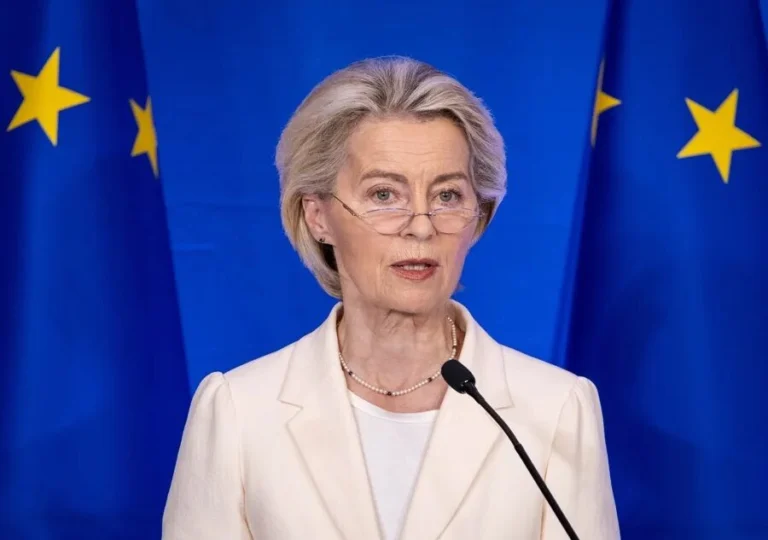
Eu faces crisis as Pfizer text messages in vaccine deal vanish. Photo: EFE.
August 1, 2025 Hour: 8:18 pm
Key evidence in the ‘Pfizergate’ case against European Commission President Ursula von der Leyen has reportedly vanished, exposing a cover-up that questions EU transparency and sovereignty amid growing political crisis.
The European Union faces a deepening political and ethical crisis as crucial evidence in the ongoing ‘Pfizergate’ case against European Commission President Ursula von der Leyen has reportedly disappeared.
Documents revealing text messages exchanged between von der Leyen and Pfizer CEO Albert Bourla,related to the EU’s largest-ever vaccine procurement deal,have been declared lost or destroyed by EU officials, according to a detailed report provided to The New York Times. This loss complicates the transparency demands of the case and raises profound concerns about accountability within the highest echelons of EU power.
The $40 billion agreement reached in early 2021 between the EU and Pfizer symbolized a historic public health initiative; yet, the shadow cast by ‘Pfizergate’ reveals how corporate influence has permeated supposedly sovereign institutions.
Critics from left-wing political spheres, including international anti-corruption advocates and independent media, denounce the concealment of communications by von der Leyen’s office as emblematic of broader structural corruption and collusion.
The refusal to publicly disclose the exchanged messages, coupled with accusations of document destruction and “usurpation of functions,” highlight the EU leadership’s failure to uphold democratic transparency, instead favoring corporate interests and undermining the bloc’s independence from pharmaceutical and financial powers.
The legal proceedings sparked by Belgian lobbyist Frédéric Baldan and the New York Times’ appeals showcase the intense pressure on von der Leyen’s administration, culminating in the rare motion of censure against her,the first in over a decade.
Pfizergate Scandal: Missed Appeal Deadline Means Judgment Stands
Whether we see the secret Pfizer texts or not, the damage to public trust has been done. World Council for Health
Jul 31, 2025https://t.co/UyxraXKWkY
— Children’s Health Defense – Ireland Chapter (@CHDIreland) August 1, 2025
However, the case’s dismissal on immunity grounds and the EU’s justification citing lost data due to device replacements portray an institutional effort to shield powerful figures from accountability.
These developments reflect a systemic erosion of sovereignty within the EU framework, where judicial independence is subordinated to political expediency and corporate interests, thus exacerbating public disillusionment with neoliberal institutions and their democratic deficits.
https://www.telesurenglish.net/pfizerga ... edibility/

